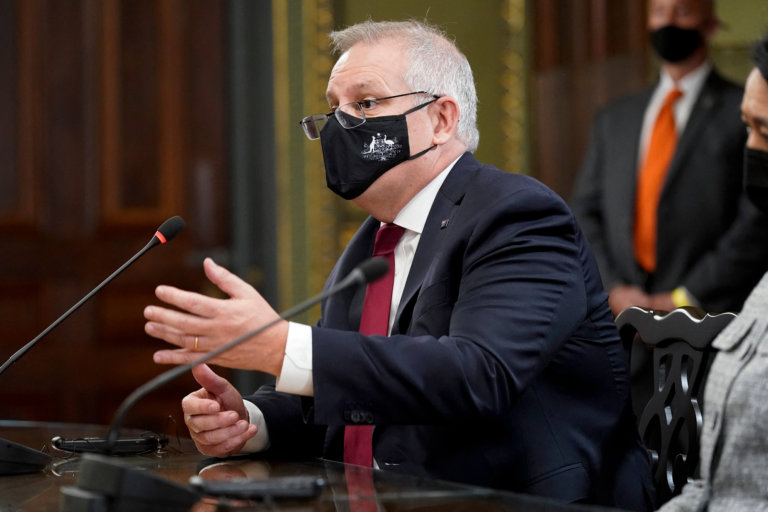
The stories of students from India struggling amid the challenges and uncertainties of the COVID-19 pandemic seem to have reached the stage of psychic numbing. Despite their numbers, their voices have been largely neglected. They are still waiting to be heard, and that includes the nearly 100,000 students from India who make up the second-largest population of the international cohort in Australia.
The students I interviewed in 2020 were a part of my PhD study that examined students from India’s experiences in student-staff partnership projects. They were all enrolled as international students in Australian universities.
The students offered personal accounts of their experiences of financial strain, mental stress and alienation amid the pandemic. This article is both a call for compassion and a reminder of the perils of treating international students as customers. And if we insist on treating them as customers, some of these customers are unhappy.
Are students getting value for money?
Students expressed disappointment about the quality of education they received in return for high international student fees.
Some students were doing their courses on mobile phones 📱 and a poor internet connection 🧑💻 – can you relate? #StudyAbroad #LetUsBackToAus https://t.co/826xx1veqI
— Study International (@Study_INTNL) October 13, 2021
Vani (all names are pseudonyms) is a postgraduate student. She had extensively researched the options of studying in Canada and the UK before narrowing down her choice to one of the Australian universities. She was dismayed when her university education quickly moved online within months of her arrival in the country.
“I completely understand everything was happening in a hurry in 2020, and moving online was the only option. The library, the labs and other facilities were not accessible. Still, we were paying the same fees for amenities. For what?”
Another student, Beena, said her university missed the opportunity to demonstrate human-centric education.
“Apart from a few academics, there was no checking-in, no poster of ‘R U OK?’ when I needed it the most.”
Many students talked about how mental stress affected their academic performance. One detailed how at the peak of the pandemic he struggled to book an appointment with the university-appointed counsellor. The wait times were very long.

Students also drew comparisons with other countries’ treatment of international students and skilled workers, specifically Canada. They felt developed countries such as Australia need to follow the humane approach of other countries. Source: William West/AFP
Financial struggles add to the burden
It was difficult for students from India to find part-time work, which they depended on. Their struggles intensified as a result of the lack of immediate government support.
Raised in Indian culture, the students felt it was their responsibility to take care of their parents. The students explained how, as adults, they felt overwhelmed by having to ask their parents for help to sustain them. Kinjal, a postgraduate student, shared her experience of dealing with plummeting job opportunities.
“At one stage of this pandemic, I was literally scavenging for work. I handed my resume to random offices and outlets as if it was a promotional brochure. Those were the moments when the gravity of the situation sank in.
“I remember attending the video call to my parents in pretend formal wear. The least I could do was not let them worry about me. I am already guilty of putting them into financial burden with a student loan for my overseas education.”
The politics of exclusion
When Prime Minister Scott Morrison told international students to head back to their country in April 2020 it had a powerful emotional impact. An 18-year student enrolled in a computer science degree said:
“I know we really do not belong in this country. I have made peace with random racial slurs. I do not feel threatened with the occasional loud screams on the quiet street – ‘Aye, you curry muncher, go back where you come from.’
“But the news headline was a tight slap. Words matter. I have engaged with various groups in a conversation about this statement, about righteousness and ethical dilemmas of politics. All I can say is that – you are asking a loyal customer to leave the store.”
Students also drew comparisons with other countries’ treatment of international students and skilled workers, specifically Canada. They felt developed countries such as Australia need to follow the humane approach of other countries.
Students from India feel helpless as COVID-19 swept India
The students were also terribly concerned for the well-being of their family members, relatives and friends as India’s healthcare system collapsed under the second wave of the pandemic. Many students expressed difficulty in managing the stress of living a double life.
“It was business as usual in my university, while Indians were fighting for their breath. When I saw my dad in the hospital through a WhatsApp call, it was devastating. It was a hard call to make. Leaving the country would mean never coming back and still paying fees for a course run online. Not going back may mean a lifetime of regret. These decisions are complicated, and it takes a mental toll.”
The experiences of these students affirm that it is time to rethink higher education and look beyond just the economic imperatives. We need to have the moral courage to stop commodifying education.
In future, one of the metrics for universities’ rankings should be how humanely they treat their students. There needs to be a place for respect and compassion for international students in educational policies.
If this article has raised issues for you, or if you’re concerned about someone you know, call Lifeline on 13 11 14.![]()
By Preeti Vayada, PhD Candidate, School of Education, The University of Queensland
This article is republished from The Conversation under a Creative Commons license. Read the original article.










